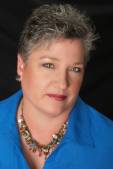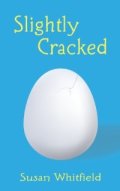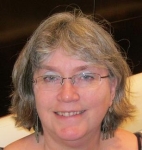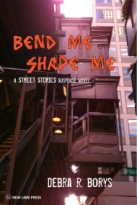W.E. Marden (Daniel Quentin Steele) is a Jacksonville author and native Floridian. A former educator, he has been a journalist and public relations professional. He has covered and reported on crime and cops, courts and trials in several Florida cities. He has worked as a speech writer and political and media consultant. He has had one novel published in the U.S. and Great Britain as well as short stories published in the U.S., Canada, Australia and England.
Hi William, Please tell everyone a bit about yourself.
 William: I’ve worked in newspapers, P.R. and education, but I’ve always been a writer whatever paid my bills. In the last two years, I’ve experienced a creative and personal rebirth. I’d spent years getting ready to glide into an uneventful and quiet countdown to death when something funny happened. There’s nothing like thinking you’re going to lose it all, and probably die, to wake you up to the beauty of living every day. I have married, loved, lost, changed jobs, lost people I loved, been unemployed, been defeated again and again, but I’m still here. However, none of those things are why I’m really here. What I write, what I put down on paper or in electronic form, those are why I’m here. I’m a writer. That’s the bottom line.
William: I’ve worked in newspapers, P.R. and education, but I’ve always been a writer whatever paid my bills. In the last two years, I’ve experienced a creative and personal rebirth. I’d spent years getting ready to glide into an uneventful and quiet countdown to death when something funny happened. There’s nothing like thinking you’re going to lose it all, and probably die, to wake you up to the beauty of living every day. I have married, loved, lost, changed jobs, lost people I loved, been unemployed, been defeated again and again, but I’m still here. However, none of those things are why I’m really here. What I write, what I put down on paper or in electronic form, those are why I’m here. I’m a writer. That’s the bottom line.
When did the writing bug bite, and in what genre(s)?
William: In the fifth grade. I wrote a short story about some friends of mine and myself in an adventure in a mine. I read it in class. My teacher and the other kids in my class loved it. I was hooked. The genre was adventure. The first genres I wrote seriously in as an adult were science fiction, fantasy and horror.
When you started writing, what goals did you want to accomplish? Is there a message you want readers to grasp?
William: I wanted to write short stories and later novels that would sell/be published. I’ve always been an avid reader and simply wanted to be published in the magazines I’d read and have other people read and enjoy my work the way I’d read other authors. I’ve never had a ‘message’ per se.
Briefly tell us about your latest book. Is it part of a series or stand-alone?
William: My latest work is a complete departure from anything else I’ve ever written. It’s one novel, broken into four volumes for purposes of length. Each volume until the final breaks on a nail-biter, a cliffhanger. The series or overall novel title is When We Were Married. Volume One is subtitled The Long Fall, and Volume Two is subtitled Second Acts. It is written under the Daniel Quentin Steele pseudonym. This book (s) is mainstream with no fantasy elements. It’s set in Jacksonville Florida in 2005 and 2006 and tells the story of the end of the marriage between an obsessed prosecutor with the State Attorney’s Office and his beautiful University of North Florida professor/wife. The novel explores how Assistant State Attorney Bill Maitland and Debbie Maitland-Bascomb react to the end of their marriage, how Maitland prosecutes a variety of murderers and drug dealers while Debbie loses her husband, lover, children and finally her career in education and must make a new life for herself. The novel is a realistic behind the scenes look at the courtroom, cops and crime and features explicit sexual scenes during the end of the marriage and afterwards.
What’s the hook for the book?
William: Four words: “When we were married.” The novel shows how four words said at the wrong time and place can destroy a twenty-year relationship, devastate a family, shake a courthouse and send out ripples that will impact lives on three continents.
How do you develop characters? Setting?
 William: In the case of When We Were Married, I started with the physical descriptions of the two main characters which fueled the action of the first long intro chapter and once the actions that launched the novel were taken, worked backwards through flashbacks and sessions with an empathetic psychiatrist to flesh out the history of the two characters and how they became the people they are at the start of the novel. Once you realize that Bill Maitland is a dedicated lawyer but a short, fat, balding middle aged man married to a taller, busty, beautiful woman who has fought to maintain her figure and is catnip to men, you don’t have to be a genius to see the train wreck that’s coming. The first chapter focuses on Bill and Debbie’s personal life, but enough of the day to day workings of the State Attorney’s Office is shown to make Maitland’s work life and his role as day to day top prosecutor for a three-county circuit believable. It takes longer to get a better look at Debbie’s professional life as an Associate Professor, but the depiction has drawn reader praise for its authenticity.
William: In the case of When We Were Married, I started with the physical descriptions of the two main characters which fueled the action of the first long intro chapter and once the actions that launched the novel were taken, worked backwards through flashbacks and sessions with an empathetic psychiatrist to flesh out the history of the two characters and how they became the people they are at the start of the novel. Once you realize that Bill Maitland is a dedicated lawyer but a short, fat, balding middle aged man married to a taller, busty, beautiful woman who has fought to maintain her figure and is catnip to men, you don’t have to be a genius to see the train wreck that’s coming. The first chapter focuses on Bill and Debbie’s personal life, but enough of the day to day workings of the State Attorney’s Office is shown to make Maitland’s work life and his role as day to day top prosecutor for a three-county circuit believable. It takes longer to get a better look at Debbie’s professional life as an Associate Professor, but the depiction has drawn reader praise for its authenticity.
Who’s the most unusual/most likeable character?
William: That would have to be Bill Maitland, although readers have indicated that Debbie Maitland fills that role for some and there are others who could claim that ace defense attorney, Lew Walters AKA “The Shark” is the most fascinating character. One of the things that many readers have praised the most highly are the number of strong characters. Many readers see Maitland as a hot tempered, unreasonable jerk at the beginning. Even as he’s revealed as a compassionate, honest and honorable man, he still has a LOT of character flaws that are revealed as the novel progresses. Most of his problems, including the loss of his wife and alienation from his children, he’s brought on himself. Debbie Maitland is a gorgeous woman who has had men after her since she was 13, enjoys the effect she has on men, and has few female friends because she likes the fact that most of the women who could be her friends don’t want to be because of her effect on their men. She’s conceited, with reason. But she loved Bill Maitland for nearly two decades, fought to hold onto a sexually unfulfilling marriage until she couldn’t any longer and in the end her children mean more to her than the best sex she’s known in twenty years. Lew Walters is a take-no-prisoners legal mercenary who’ll cut almost anyone’s throat, except his best friend, Bill Maitland. And even though he’s conceited, he’s just that good in a courtroom.
Do you have specific techniques to help you maintain the course of the plot?
William: Much of the novel is foreshadowed so that the plot as it progresses, moves from one climactic moment to the next which readers have already been expecting for some time. Two key elements in the novel are introduced early and then later in the first volume and come to fruition in the second volume. In the second volume two major plot threads are introduced and begun. One will be the spine of the third volume and the other plot will occupy much of the fourth volume. And over and above these specific plot points, the main thread of the entire four-volume series is – what will happen to Bill and Debbie. The real theme of the entire four-volume set could be summed up by the title of the second volume – Second Acts. In other words, when lives are ruined and marriages end, can two people even if they love one another, ever put things back together again? Or should they move on?
Do you have a specific writing style? Preferred POV?
William: My preferred POV is first person. I’ve written one novel and a few short stories in third, but first is preferred. When We Were Married is somewhat unusual in that it’s a combination. It is primarily first person POV, that of Bill Maitland, but large portions of the novels are written in third person as well, usually that of Debbie Maitland. I’m not really sure why that works, but in my mind it does and readers don’t seem to have any problem following the POV changes.
How does your environment/upbringing color your writing?
William: I was born and raised and have lived in the North Florida area that is the setting for “When We Were Married.” I’ve used Jacksonville as the setting for other novels. I worked as a reporter covering cops and courts for more than a decade and has the chance to see the public and private sides of prosecutors, defense lawyers, cops, criminals, trials and most of the other aspects of life explored in WWWM.
Share the best review (or a portion) that you’ve ever had.
njreaderBD
Posted January 5, 2012
An excellent, compelling read
I read this book continuously over a couple of days, staying up late to finish it, and found it a compelling book. The main characters are complex people and like any good narrative story how you view the characters changes. Unlike many such tales of a couple splitting apart, the author goes into enough depth that you actually start understanding the human feelings at the center of this. This is not the evil spouse leaves the good spouse, the good spouse is devastated then gets their life back together. It is a lot more complex than that. There are nuances, wheels within wheels, that keep you guessing and at least in my case made me change my opinions about the people. I think maybe because I have been married for 23 years and have had my ups and downs and elements of the story remind me of my own life, in many ways it haunted me, made me think about my own feelings and emotions and as a result dug me in deeper.
Mr. Steele’s writing is excellent. It isn’t overly wordy and the dialog is both jarring at times and realistic, the anger and love and confusion expressed in the words paints a vivid picture of people in turmoil. Defining this book simply based on its category would be like defining a Raymond Chandler story as just another mystery and dismissing it as such without reading it would be a major mistake.
What are your current projects?
William: I’m currently in the process of writing the third volume of When We Were Married – The Wind Is Rising and hopefully in the next several weeks will be posting a third novel, a previously written urban fantasy titled Lady White Eyes.
Where can folks learn more about your books and events?
William: My e-books are sold on Barnes and Noble and on Smashwords for most readers and in most formats. They’re currently not available in hard copy, although I hope to arrange that shortly. I have a website and a Facebook page for Daniel Quentin Steele and I welcome any contacts via my Daniel Quentin Steele email address.Both Volume 1 and 2 are selling for $9.95 a download.
http://www.barnesandnoble.com/w/when-we-were-married-volume-1-the-long-fall-daniel-steele/1106754384?ean=2940013654587
http://www.barnesandnoble.com/w/when-we-were-married-2-second-acts-daniel-steele/1108241609?ean=2940013760448
https://www.smashwords.com/books/view/115234
https://www.smashwords.com/books/view/124503
http://www.dqsteele.com/about.html (website)
http://www.facebook.com/danielquentin.steele (facebook)
https://twitter.com/#!/QSteele1 (twitter account – would love to be followed)
http://www.youtube.com/watch?v=Q-xRNKxC7ak (youtube – The Unknown Writer interview)
Thanks for joining us today, William.
William: Thank you for this opportunity to get some information out about my books.

 Susan: A life-long native of North Carolina, I’ve lived in both the eastern and western parts of the state. I taught high school English for thirteen years before moving in high school administration for the remainder of my career. I retired and began my second career, writing. I have five published mystery novels: Genesis Beach, set along NC’s Crystal Coast; Just North of Luck, set in the Blue Ridge Mountains, Hell Swamp, set along Black River in Pender County, Sin Creek in Wilmington, and Sticking Point in Beaufort. I’m a member of Mystery Writers of America, Sisters in Crime, Coastal Carolina Mystery Writers, and North Carolina Writers Network. My husband and I live in Wayne County just a few miles from our two sons and their families.
Susan: A life-long native of North Carolina, I’ve lived in both the eastern and western parts of the state. I taught high school English for thirteen years before moving in high school administration for the remainder of my career. I retired and began my second career, writing. I have five published mystery novels: Genesis Beach, set along NC’s Crystal Coast; Just North of Luck, set in the Blue Ridge Mountains, Hell Swamp, set along Black River in Pender County, Sin Creek in Wilmington, and Sticking Point in Beaufort. I’m a member of Mystery Writers of America, Sisters in Crime, Coastal Carolina Mystery Writers, and North Carolina Writers Network. My husband and I live in Wayne County just a few miles from our two sons and their families. Susan: I’ve been writing the Logan Hunter Mysteries, publishing the first novel back in 2007. As much as I have loved Logan, I knew as an author I wanted to write other stories and perhaps other genres. When I wrote Slightly Cracked, women’s fiction, I knew I wanted to write more in that genre, so I ended the Logan Hunter Mysteries with Sticking Point, published in February of this year. I think I left Logan in a good place after putting her through some horrible ordeals in Genesis Beach, Just North of Luck, Hell Swamp, and especially Sin Creek. While I did enjoy the series, I also have a fondness for stand-alones like Slightly Cracked. I am currently trying my hand at historical fiction. More on that later.
Susan: I’ve been writing the Logan Hunter Mysteries, publishing the first novel back in 2007. As much as I have loved Logan, I knew as an author I wanted to write other stories and perhaps other genres. When I wrote Slightly Cracked, women’s fiction, I knew I wanted to write more in that genre, so I ended the Logan Hunter Mysteries with Sticking Point, published in February of this year. I think I left Logan in a good place after putting her through some horrible ordeals in Genesis Beach, Just North of Luck, Hell Swamp, and especially Sin Creek. While I did enjoy the series, I also have a fondness for stand-alones like Slightly Cracked. I am currently trying my hand at historical fiction. More on that later. Susan: In Sticking Point, Logan must work with another investigator whom she thinks she despises. They are uncomfortable and it shows, but as the investigations rolls along, they begin to understand and appreciate how the tragic past has affected each of them. My favorite character in this book is the bed and breakfast owner, a British lady with strict rules and secrets of her own, but the novel moves from a mystery into a love story that I’m quite proud to have written.
Susan: In Sticking Point, Logan must work with another investigator whom she thinks she despises. They are uncomfortable and it shows, but as the investigations rolls along, they begin to understand and appreciate how the tragic past has affected each of them. My favorite character in this book is the bed and breakfast owner, a British lady with strict rules and secrets of her own, but the novel moves from a mystery into a love story that I’m quite proud to have written.





























 Stumble It!
Stumble It!

